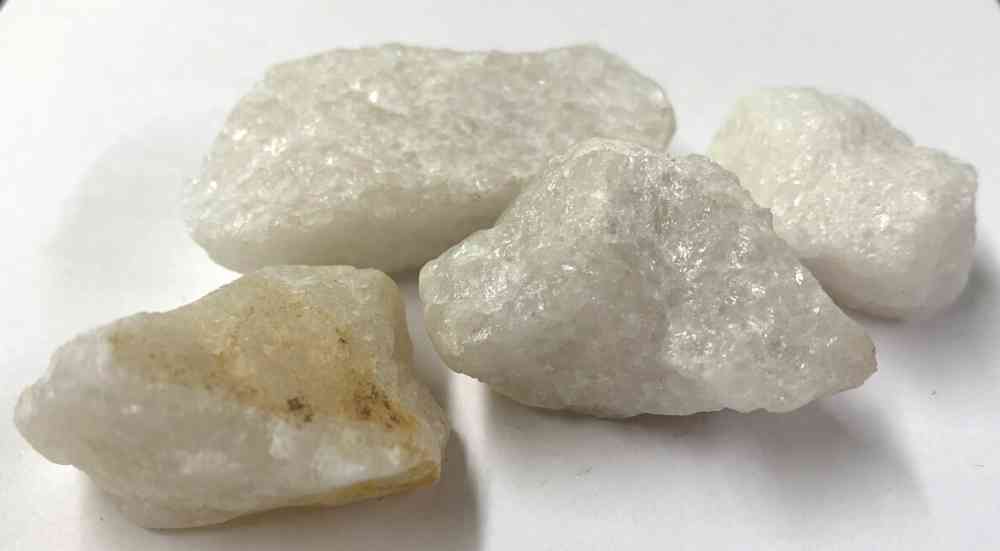
Quartz, also known as rock crystal, belongs to the mineral family of silicates and is widely sought after for its aesthetic appeal and metaphysical properties. Understanding how quartz is valued is essential for both buyers and sellers in the gemstone market. Let’s delve deeper into the factors that determine the worth of quartz.
Factors Affecting the Value of Quartz
Quartz crystals are not only captivating and aesthetically pleasing, but they also hold significant value in the gemstone market. When assessing the worth of a quartz crystal, it’s important to consider several key factors that can affect its value.
Understanding these factors will enable you to make informed decisions when buying or selling quartz crystals. In this section, we will delve into the various aspects that influence the value of quartz crystals.
1. Clarity and Transparency
One of the primary factors that affect the value of a quartz crystal is its clarity and transparency. Clarity refers to the presence or absence of internal flaws, such as inclusions or fractures, within the crystal. Crystals with exceptional clarity and minimal imperfections are highly sought after and command a higher value. Similarly, the transparency of the crystal plays a role in its desirability. Quartz crystals that exhibit excellent transparency, allowing light to pass through with minimal obstruction, are considered more valuable.
2. Color
The color of a quartz crystal is another significant factor influencing its value. Quartz crystals come in a wide range of colors, including clear, white, pink, purple, yellow, and smoky brown. Some rare varieties, such as ametrine, display a combination of colors within a single crystal. The rarity, intensity, and purity of color can greatly impact the value of a quartz crystal. Vivid and vibrant colors, especially in rare varieties, often command higher prices due to their exceptional beauty and desirability.
3. Cut and Shape
The craftsmanship and quality of the cut and shape of a quartz crystal also contribute to its value. Skilled lapidaries carefully cut and shape crystals to enhance their brilliance and visual appeal. A well-cut quartz crystal will have precise facets and smooth surfaces that reflect light and maximize its sparkle. Crystals with symmetrical shapes and clean lines are generally more valuable, as they require meticulous skill and expertise to achieve.
4. Size and Weight
The size and weight of a quartz crystal are factors that can impact its value. In general, larger crystals are more valuable, assuming that other factors like clarity, color, and cut are comparable. Larger crystals are rarer and require more time and effort to grow. However, it’s important to note that excessively large crystals may face challenges in terms of practicality and usability, especially when it comes to incorporating them into jewelry or display pieces.
5. Origin
The origin of a quartz crystal can also affect its value. Some regions are renowned for producing high-quality quartz crystals, and crystals sourced from these locations may be considered more valuable. For example, quartz crystals from certain mines in Brazil, Madagascar, or the Swiss Alps are highly regarded due to their exceptional clarity, color, and overall quality. The reputation and history associated with crystals from specific origins can influence their market value.
6. Rarity and Exclusivity
The rarity and exclusivity of a quartz crystal variety significantly contribute to its value. Certain quartz varieties, such as rare colored or patterned crystals, are harder to find and therefore command higher prices. Crystals with unique formations, growth patterns, or optical phenomena, like phantom quartz or rutilated quartz, are highly sought after by collectors and enthusiasts due to their scarcity and distinct beauty.
7. Market Demand
The overall market demand for quartz crystals plays a crucial role in determining their value. Trends, fashion preferences, and consumer demand can fluctuate over time, impacting the perceived value of specific quartz crystal varieties. Crystals that are currently popular and in high demand will generally have a higher market value, while those that are less sought after may have a lower value. Staying informed about current market trends and preferences can help both buyers and sellers navigate the quartz crystal market effectively.
By considering these factors, you can gain a better understanding of how quartz crystal value is determined. Keep in mind that each factor contributes to the overall worth of a crystal, and their importance may vary depending on individual preferences and market dynamics. Whether you’re an avid collector, a jewelry enthusiast, or someone interested in the metaphysical properties of quartz crystals, understanding these factors will enable you to make informed decisions and appreciate the beauty and value of these remarkable gemstones.
Assessing Quartz Value
Determining the value of quartz requires a comprehensive assessment based on various parameters. The following aspects play a significant role in evaluating its worth.
Appraisal and Certification
Professional appraisal and certification provide an objective evaluation of a quartz gemstone’s quality and value. These documents offer credibility and assurance to potential buyers and can positively impact the gem’s market value.
Market Demand
The demand for quartz gemstones within the market significantly influences their value. Trends, fashion preferences, and consumer demand can drive up prices, particularly for rare or highly sought-after varieties of quartz.
Pricing and Market Trends
The pricing of quartz gemstones is influenced by a combination of factors, including the following:
5.1 Retail and Wholesale Prices
Quartz gemstones are typically sold at both retail and wholesale levels. Retail prices reflect the final selling price to consumers, whereas wholesale prices cater to jewelry manufacturers, gem traders, and industry professionals. Wholesale prices are generally lower due to bulk purchasing.
3. Rarity and Exclusivity
Quartz varieties that are rare or exclusive tend to command higher prices. Limited availability and difficulty in sourcing these gemstones contribute to their increased value among collectors and enthusiasts.
4. Influence of Brand
Well-established brands and renowned designers can significantly impact the value of quartz jewelry. A brand’s reputation, craftsmanship, and marketing efforts can elevate the perceived worth of quartz gemstones.
5.4 Market Fluctuations
The gemstone market is subject to fluctuations influenced by global economic conditions, supply and demand dynamics, and changing consumer preferences. Quartz prices can be affected by these market trends, making it important to stay updated on current market conditions.
Investing in Quartz
If you’re considering investing in gemstones, quartz can be an intriguing option. Its beauty, durability, and increasing popularity make it an attractive choice for those looking to diversify their investment portfolio. However, before delving into the world of quartz investments, it’s essential to understand the factors that can affect its value and make informed decisions. In this section, we will explore the key aspects to consider when investing in quartz.
Long-Term Value Potential
Quartz gemstones have demonstrated a strong potential for long-term value appreciation. The rarity, desirability, and quality of quartz contribute to its investment appeal. As with any investment, it’s crucial to conduct thorough research and consult with experts to make informed decisions.
Resale Considerations
When considering quartz as an investment, it’s essential to evaluate the resale market. Several factors can influence the resale value of quartz gemstones, including brand reputation, market demand, and the overall condition of the gemstone. Investing in quartz jewelry pieces crafted by renowned designers or brands with a solid reputation can enhance the resale potential.
Market Trends and Demand
Keeping a close eye on market trends and understanding the demand for quartz gemstones is vital when making investment decisions. Consumer preferences, fashion trends, and shifts in the market can impact the value of quartz. It’s essential to stay informed and adapt to changes to maximize your investment’s potential.
Rarity and Exclusivity
The rarity and exclusivity of certain quartz varieties can significantly influence their investment value. Gemstones with limited availability and those that exhibit unique characteristics or colors tend to command higher prices. Investing in rare quartz varieties can offer the potential for greater returns, but it’s important to balance rarity with market demand.
Expert Advice and Appraisal
Investing in quartz gemstones requires expertise and knowledge. Seeking advice from gemologists, appraisers, or experienced professionals in the gemstone industry can help assess the quality, authenticity, and value of the quartz specimens you’re considering. Appraisal and certification provide credibility and assurance, increasing confidence in your investment decisions.
Diversification and Risk Management
As with any investment strategy, diversification is crucial. Consider allocating a portion of your investment portfolio to quartz gemstones, along with other asset classes. Diversification helps mitigate risks and provides opportunities for stable long-term growth.
Investing in quartz gemstones can be an exciting and potentially rewarding venture. However, it’s essential to approach it with careful consideration and thorough research. Understanding the factors that impact quartz’s value, staying informed about market trends, and seeking expert advice will empower you to make informed investment decisions.
Remember, the world of gemstone investments can be complex, and market conditions can fluctuate. It’s important to approach quartz investments with a long-term perspective, allowing time for potential appreciation and being mindful of the risks involved. By combining knowledge, research, and expert guidance, you can navigate the world of quartz investments with confidence and maximize your chances of success.
Conclusion
The value of quartz gemstones is determined by a combination of factors, including clarity, color, cut, size, origin, and market demand. Assessing these factors accurately requires expertise and knowledge. Whether you’re a buyer, seller, or investor, understanding the intricacies of quartz value can help make informed decisions within the gemstone market.
FAQs (Frequently Asked Questions)
How can I determine the value of my quartz gemstone?
It’s best to consult with a professional gemologist or appraiser who can assess its quality and provide an accurate valuation.
Does the size of a quartz gemstone affect its value?
Generally, larger gemstones are more valuable, but other factors such as clarity and color also play a significant role in determining value.
Are there any specific regions known for producing high-quality quartz?
Yes, certain regions like Brazil and Switzerland are renowned for their production of high-quality quartz gemstones.
Can investing in quartz gemstones be profitable?
Quartz gemstones have shown long-term value appreciation, but it’s essential to consider market trends, rarity, and quality before making investment decisions.
How does market demand affect the value of quartz gemstones?
Market demand, influenced by trends and consumer preferences, can impact the value of quartz gemstones, especially for rare or sought-after varieties.

